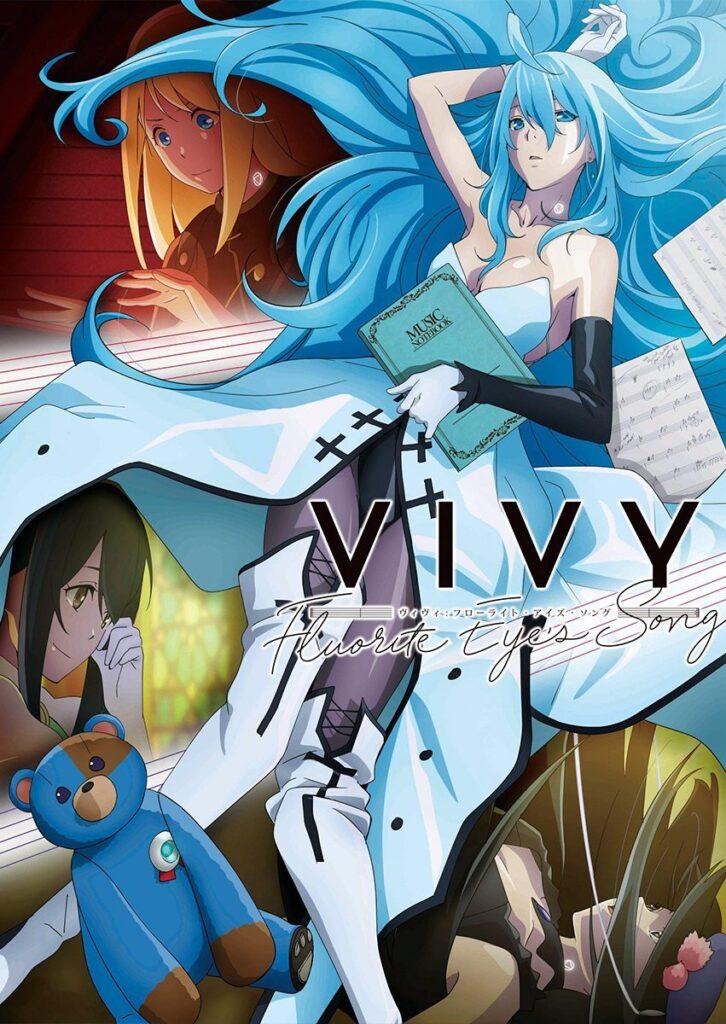Recap: A Humble Beginning That Changes Everything
The story opens in a future where artificial intelligence isn’t just part of daily life—it’s helping run it. Vivy, the first-ever autonomous AI, was created for a singular, peaceful mission: to sing and bring joy to humans. Her days are simple, spent performing for small crowds at a theme park, holding tightly to her core programming: “Make people happy with my singing.”
But everything takes a dramatic turn when a strange AI named Matsumoto appears from 100 years in the future. He delivers a dire warning: in one century, AI will launch a war that leads to humanity’s destruction. His mission? Partner with Vivy to stop that future from happening—by altering key events in history.
This isn’t something Vivy is built for. She’s not a fighter, not a strategist, not even someone who understands what war means. But her journey begins anyway, and over time, her purpose starts to shift.
A Timeline of Tragedy, Growth, and Grey Areas
Each arc in Vivy: Fluorite Eye’s Song takes place years—even decades—apart, and that’s what makes the show unique. Vivy is placed into different points in time, where she must intervene in critical historical moments that will shape the fate of AI-human relations.
Some arcs are grounded in emotion: a love story between a man and an AI destined to fail. Others are rooted in political tension, such as saving an anti-AI politician from assassination. But no matter the setting, one thing is constant—Vivy’s emotional evolution.
She begins the series robotic and mission-focused. But slowly, heartbreak by heartbreak, she changes. She starts questioning the morality of her actions, the meaning behind her voice, and even her memories—some of which become corrupted due to trauma. Her conversations with Matsumoto shift from cold logic to philosophical debates about identity, purpose, and humanity.
Each episode builds on the one before it, not just chronologically, but emotionally. And the more she grows, the less clear her mission becomes.
A Soundtrack That Echoes the Soul of the Story
Music is at the heart of Vivy: Fluorite Eye’s Song, not just in name, but in spirit. Her singing is more than performance—it’s connection. Her songs mark the highest and lowest points of her life, from the innocence of her first performances to the pain she expresses in the final arcs.
The main theme, “Fluorite Eye’s Song,” is used sparingly but with purpose. When it plays, it’s often during climactic emotional moments, acting almost like a farewell or a plea. It’s not just Vivy singing—it’s Vivy remembering. Every note is loaded with the weight of her journey.
The animation, courtesy of Wit Studio, complements this perfectly. The visual storytelling—sharp fight choreography, quiet reflective scenes, the lighting during performances—elevates the mood in a way few anime manage to do consistently.
A Bittersweet Farewell That Leaves Its Mark
The final episodes of the series bring everything full circle. The AI rebellion still happens, but under slightly altered circumstances. Vivy must confront the terrifying truth: no matter how hard she tried to change the future, some events may be inevitable. And yet, that doesn’t make the fight meaningless.
Vivy’s final act isn’t just to stop a war—it’s to find herself. Her closing performance, stripped of spectacle, is pure vulnerability. And it’s in that moment that we realize something profound: Vivy may have been built as a machine, but she lived as something far more human.
The ending leaves room for interpretation. Is Vivy at peace? Has she been lost forever? Or has she simply moved on, in a form we can’t fully understand? The show doesn’t spell it out—and that’s part of what makes it stay with you long after the credits roll.
Final Thoughts
Vivy: Fluorite Eye’s Song isn’t just a sci-fi anime about robots or future tech. It’s about time, memory, choice, and the weight of purpose. With emotional depth, philosophical layers, and breathtaking artistry, it’s a story that dares to ask: can something created for one task grow beyond it? Can an AI develop a soul?
And by the end, Vivy’s voice, shaped by pain and growth, gives us the answer.



